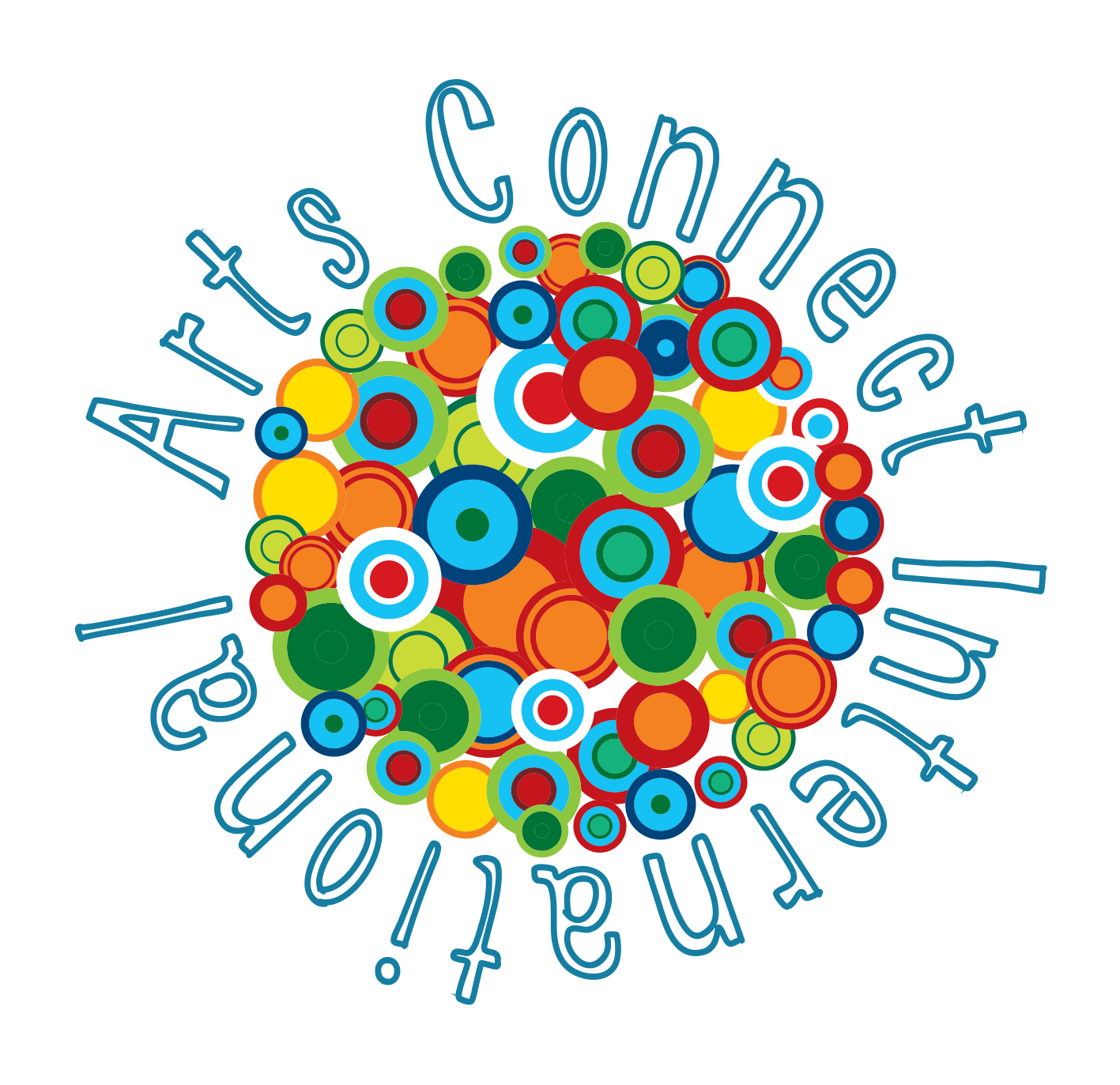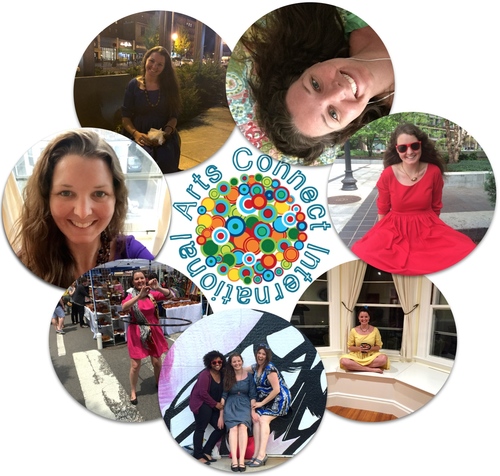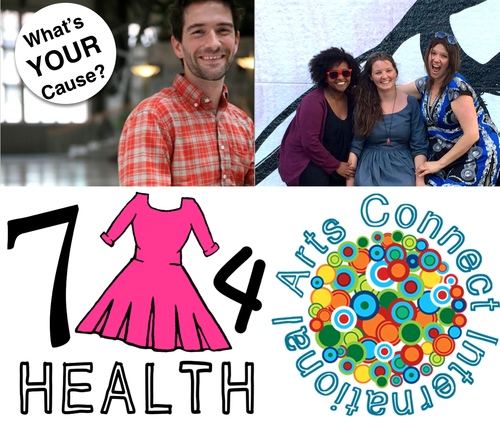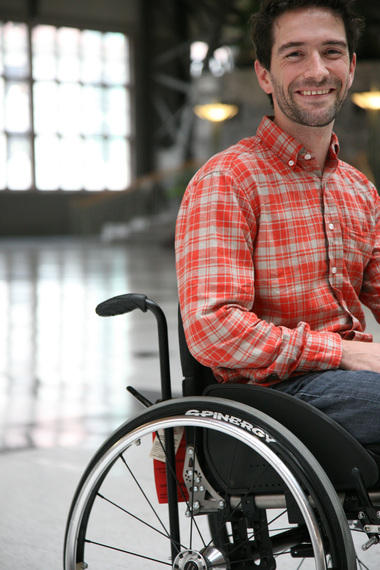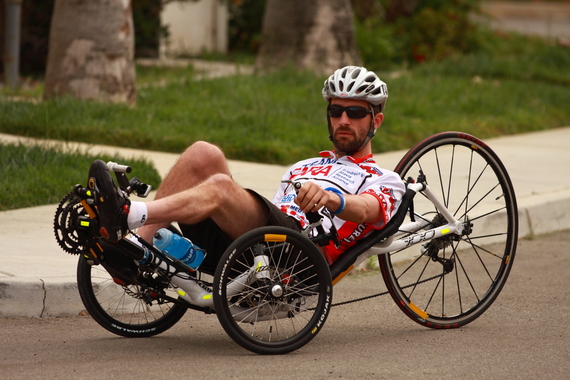This post originally appeared on The Huffington Post
Guest blogger bio:
Kyle Bryant is an athlete, keynote speaker and director of rideATAXIA, a bicycle fundraiser for the Friedreich's Ataxia Research Alliance (FARA). rideATAXIA currently has 5 locations nationwide and has raised over $3 million for FA research since 2007. Despite his diagnosis of FA at the age of 17, Kyle has completed numerous long distance bike rides including "The World's Toughest Bike Race," Race Across America (RAAM) in 2010 as part of 4-person team representing Team FARA. Team FARA's journey is the subject of "The Ataxian,” a feature-length documentary hosting its World Premiere on June 6th, at Dances with Films’ 2015 annual festival in Los Angeles, CA. For more info, please visit www.kyleabryant.com.
Title: 6 Tips for Coping with a Debilitating Disease
I was diagnosed with a rare, debilitating disease called Friedreich's ataxia (FA) when I was 17. I am now 33. Here are some things to consider when thinking about what rare disease means for your life.
1. Always Remember: This Doesn't Change Who You Are
Diagnosis of a rare disease seems to change everything. Your doctors' appointments become more frequent, family dynamics get more intense, relationships with friends get confusing, your outlook on the future changes and you begin to question whether this situation is changing your personality and character. However, these challenges actually strip away some of the everyday nonsense that creeps into all of our lives and bring you face to face with who you are at your core. Rare disease does not change the definition that you have for yourself; it helps refine the definition.
2. Get Involved With the Community
When I was first diagnosed with FA, my family and I couldn't even pronounce Friedreich's ataxia. We searched online and saw people in wheelchairs and read about symptoms like vision loss, hearing loss, and life shortening heart complications. In that moment we thought: Life is over. And our imagined reality showed us the worst possible scenario.
I lived in this imagined reality for several years, and I was reluctant to meet other people for fear that I might get a glimpse into a terrible future.
However, when I finally met others with FA, I realized that I had no reason to fear the future. I found out that people with FA are smart, funny, successful people just like everyone else. I began to reconstruct my imagined reality into an actual reality of what this disease might mean for my future through positive encounters with others in the community.
There is no doubt that it is a scary thing to meet others with the same rare disease. Sometimes, it may feel like looking into a difficult future. However, it is critical to construct an accurate picture of the future, so you can navigate your new landscape with confidence.
3. Use This As an Excuse to Do Something Great
A diagnosis of a rare disease is probably a socially acceptable reason to feel sorry for yourself. If I got really mad and locked myself in a room and just played video games for the rest of my life, people would question it and try to convince me that there is more to life, but there would be a certain level of understanding for my behavior. FA, like many unfortunate situations, is on some level an acceptable excuse to give up.
However, it is also a perfectly acceptable excuse to do something a little outside the box, a little risky. You're going to be in a wheelchair soon, and you will likely die a premature death due to heart disease. Take a chance. Act with urgency. Use your circumstance as an excuse to do something great with your life.
The disease I have, FA, is an energy deprivation disease. Cells in the body do not make enough energy to carry out their operations and one of the main symptoms is extreme fatigue. However, in 2010, I got together with three friends; John Lockwood, Mike Mellott, and Sean Baumstark (who also has FA like me) and participated in "The World's Toughest Bike Race" -- Race Across America (RAAM) to raise awareness for FA research. RAAM is a 3,000 mile, nonstop race from the Pacific Ocean to the Atlantic. Some might have thought this was not an entirely rational thing to do, especially when half the team is living with an energy deprivation disease. However, we do not view FA as an excuse to feel sorry for ourselves; we view it as an excuse to do something great with our lives. We had a film crew with us during RAAM and our journey is the subject of "The Ataxian," a feature-length documentary hosting it's World Premiere on June 6th, at Dances With Films' annual festival in Los Angeles, CA.
4. Be Prepared for Change
Many rare diseases such as FA are progressive and degenerative, -- they get worse over time. This means that you are always adapting to a changing situation and constantly figuring out how to work with diminished abilities. I went from playing sports and running around with friends to stumbling around awkwardly to part-time use of a wheelchair, a walker, hand controls on my car, and eventually, full-time use of a wheelchair -- all within about 15 years.
Transition to a wheelchair is one of the toughest and most dreaded transitions for someone with a degenerative neuromuscular disease. People going through this transition, myself included, try to delay it as long as possible -- and for good reason. Many times, FA is a "use it or lose it" situation, so the longer you make the effort to use those walking muscles, the longer they will remain. However, when I finally sat down in a wheelchair, I found out that it allowed me to accomplish much more than if I continued to try to walk. It conserved my energy so I could use it for the things I enjoyed like cycling. When I was still standing -- perhaps in a crowded room where I was being introduced to people for the first time, I was constantly scanning the room for the next thing to hold on to and worrying about falling over. When I started using a wheelchair, I could once again concentrate on making eye contact, having a firm handshake, and remembering names. My wheelchair is a tool that helps me get things done rather than an obstacle to be avoided.
5. Get Over It!
In all these transitions, it is important to stay objective. It is important to focus on the tools that will help you get the job done rather than what others think or what will it look like. Life with a rare neuromuscular disease creates many awkward situations -- you are going to fall on the ground in front of a group of peers; you are going to need to carry mail in your mouth so you can push your chair; you are going to have to scoot down the stairs on your butt and ask someone to carry your chair; you are going to lose control, hit a crack in the sidewalk, go flying and need to ask for help to get back into your chair. There will be many awkward situations...Get over it! If you are focused on your goals, then it doesn't matter what it looks like or if it takes longer. You are going to arrive at the same destination. Rare disease does not change your destination, it only changes how you get there.
6. Keep Crankin'
These thoughts are by no means a complete list. There are so many things to figure out, but when you are stuck, please consider the above tips. I hope they will relate to your situation and help you move forward. Once you build some momentum, there is no limit to what you can accomplish.
Follow Kyle Bryant on Twitter: www.twitter.com/KyleABryant
Call to action: Do you have important information around one of our seven causes: HIV/AIDS, Mental Health, Nutrition, Heart Disease, Maternal Child Health, Cancer, Disability, that you want to share with a wider audience? Do you or a loved one currently live and/or struggle with one of these causes? Do you work in research, advocacy, prevention, treatment or care? We want to hear from YOU! Write to us today: 7dresses@artsconnectinternational.org to become a featured blog writer. Another way to get involved is to wear the color of the day in solidarity. Take a picture of yourself in the color of the day and Tweet it @ArtsConnectInt, tag us on Instagram @ArtsConnectInt, or send it to us on Facebook.
About 7 Dresses 4 Health (7D4H): 7D4H is a year-long arts and health education campaign lead by visual artist, Marian Brown, in conjunction with Arts Connect International. The objective of the campaign is to promote inclusive community practices through adDRESSing health artistically and collaboratively. To learn more about the genesis of the project, read Marian’s New Year Blog.
About this week's look & location: All of the dresses for 7 Dresses 4 Health were designed and sewn by Kim's Fashion Design. Love the look? Visit Kim at 100 Huntington Ave, Boston MA 02116, call her at (617) 267-9299 or email her: info@kimsfashion.com. Mention 7 Dresses 4 Health for a special discount!
Campaign Update (2017): All 7 Dresses 4 Health blogs were migrated from a former site, so the sharing analytics are inconsistent from when they were first published. We apologize to our guest bloggers, and readers, for this inconvenience. That said, the campaign garnered an average of 5K hits per blog, over 500,000 readers throughout 2015! Additionally, the average number of shares per guest blog was over 150x on social media (through Facebook and Twitter). Thank you for making this incredible campaign possible - and for all that it was for so many. With gratitude, Marian & the ACI Team
